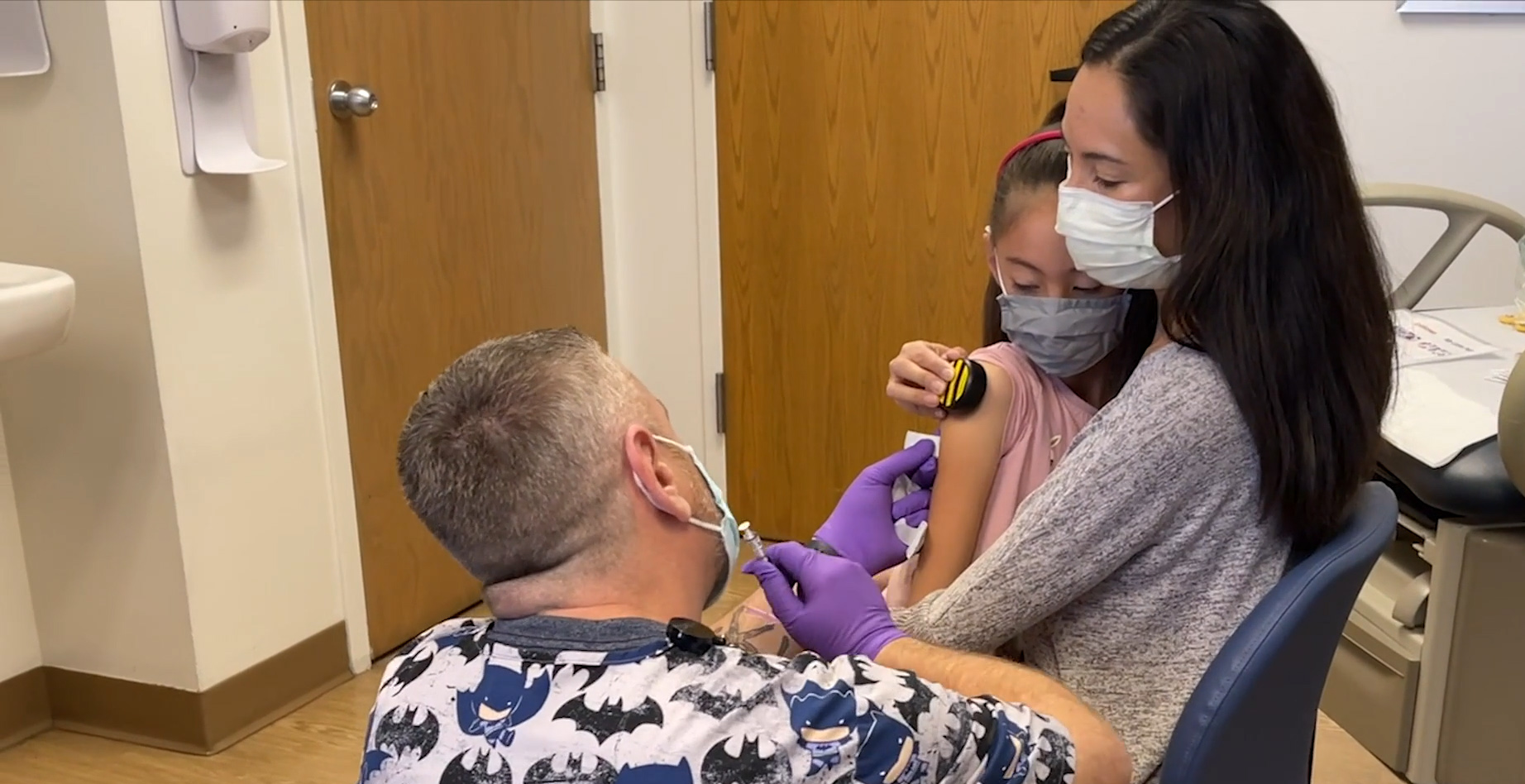Preparing for Disaster: UNM Hospital Participates in Region-Wide Emergency Training

What Parents Need to Know About Vaccinating Their Children Against COVID
Bottom line: the COVID-19 vaccine is like getting any other shot your child has received since infancy.
There might be redness in the area, or possibly a rash, which is normal. And after the second shot, they might feel tired and feverish as the immune system ramps up to protect children when they’re actively exposed to COVID.
With the Pfizer vaccine now available to younger children – 5 to 11 years old – some children might feel anxious about having to get a shot. The dose the younger kids receive is smaller than the adult and teen dosage, says Walter Dehority, MD, MSc, an associate professor of Pediatric Infectious Disease.
He suggests that parents tell their youngsters that getting the COVID vaccine will feel similar to any other vaccine, such as those for preventing chickenpox and the flu.
Talking to your child about others they know who’ve been vaccinated – e.g., mom, dad, brother, sister – can also put them at ease beforehand.
Dehority suggests saying something such as: “You've heard so much about (COVID) and this shot is going to prevent you, hopefully, from getting COVID. It's not going to give you COVID. This is to help you so that you don't get COVID.”
And, offering a treat of some sort to your child for braving the shot can also be helpful, Dehority says.
The vaccine will be available to children 5 to 11 years old at a COVID vaccine clinic taking place Saturday, Nov. 20, from 9 a.m. to 3 p.m. at Carrie Tingley Hospital, 1127 University Blvd. NE. Register on the New Mexico Department of Health website and use code LOBO PUPS. A shot clinic for second doses takes place Dec. 11.
Pediatric Vaccination Clinic at Carrie Tingley Nov. 20
Sign up your child to get their COVID-19 vaccinationDehority acknowledges that some families might wonder why so many cases have flared up recently even though so many people have been vaccinated.
“Early on in the pandemic, kids were sheltering at home,” Dehority says. “They were kept out of school the whole year. They were wearing face masks, they weren't participating in sports and after-school activities. They really weren't getting a lot of COVID.
“And then two things happened. One, we had the Delta variant start to emerge, which was new, and then kids started going back to school and participating in their activities as that happened. We saw an uptick in the number of pediatric cases and increasing reports of more severe cases, including deaths. It is still true that kids don't get as sick as older people, but they still get very sick and I would classify this disease as more serious than the flu.”
The reason we’re all out and about at work and school is because of the COVID vaccine, he says.
“The best argument I can use is I often ask parents, ‘Have you ever heard of a kid with tetanus? Have you ever seen a child with measles? Have you ever seen one of your children or friends’ children get whooping cough or polio? When's the last time you saw a child in a wheelchair from polio?’ And most of the time they say, ‘I've never heard of that.’”
That’s because of vaccines.
“Vaccines probably are the single greatest public health advancement of the 20th century,” Dehority says.